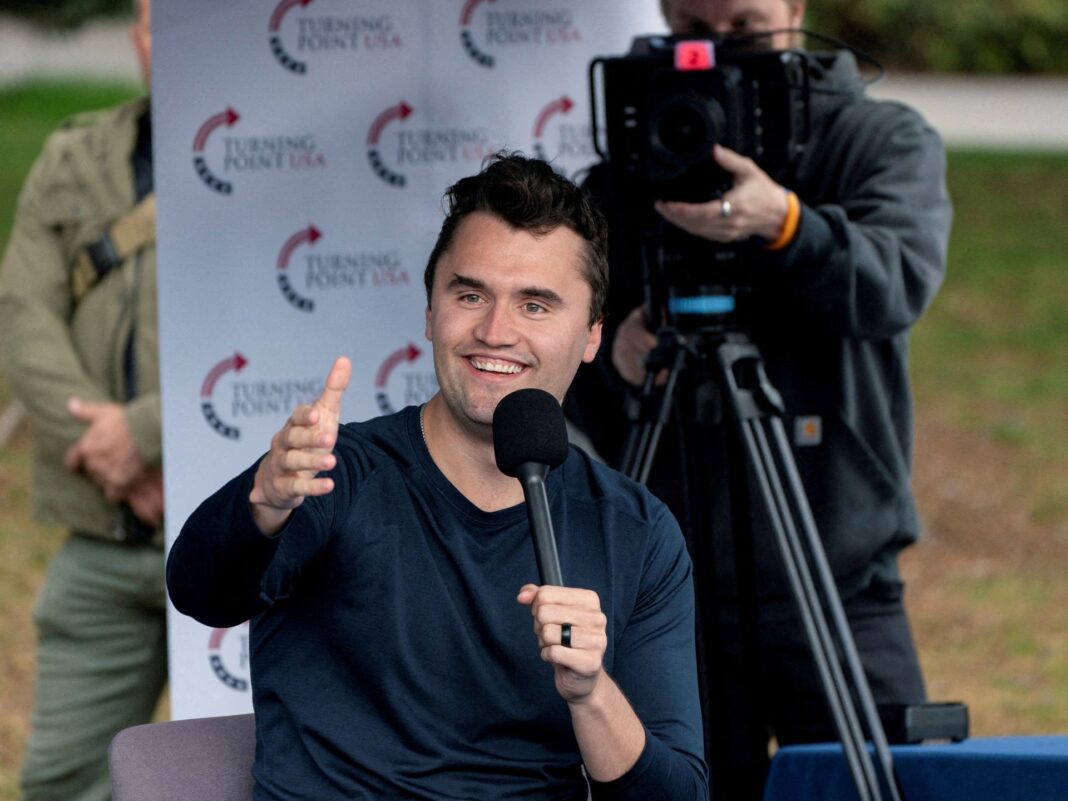US President Donald Trump to Address Arizona Service for Assassinated Ally
A Historic Memorial
On September 21, 2025, tens of thousands of people are anticipated to gather at State Farm Stadium in Glendale, Arizona, for a memorial service honoring Charlie Kirk, a prominent right-wing activist and founder of Turning Point USA. Kirk was tragically killed earlier this month, sparking national attention and deepening political divides. The event, aptly titled “Building a Legacy: Remembering Charlie Kirk,” is expected to attract more than 63,000 attendees, with additional space arranged for overflow crowds.
High-Profile Attendance
The memorial will feature speeches from notable figures, including former President Donald Trump and current Vice President JD Vance. Kirk’s widow, Erika, who recently assumed leadership of Turning Point USA, is also set to address the audience. In a statement before departing for Arizona, Trump emphasized the significance of the event: “We’re going to celebrate the life of a great man today.”
An Unruly Outpouring of Grief
Al Jazeera’s Phil Lavelle reported on the unpredictability of the event’s attendance. With no tickets required for entry, attendees were only asked to register online. Lavelle spoke to a woman expressing her doubt about gaining access due to the overwhelming expected turnout. This lack of ticketing has added to the excitement and the uncertainty surrounding the memorial.
Security Measures in Place
The Department of Homeland Security has classified the memorial service as an event of “the highest national significance,” a designation usually reserved for occasions like the Super Bowl. Given the high-profile nature of the attendees and the prevailing political tensions following Kirk’s assassination, tight security measures have been instituted. Attendees can expect rigorous protocols designed to ensure safety and manage the large crowd.
A Tragic Incident
Charlie Kirk was fatally shot on September 10, 2025, during a university event in Utah. Local police have charged a 22-year-old suspect with murder, stating that the attack was a solitary act fueled by a personal vendetta against Kirk. The suspect reportedly stated he had “enough of his hate.” This shocking incident has intensified discussions around political violence and the safety of public figures.
A Polarizing Figure
Kirk’s legacy is undeniably complex. During his career, he earned a reputation as a polarizing firebrand, advocating for aggressive policies at the U.S.-Mexico border and vocalizing controversial opinions about Islam and climate change. He attracted significant attention for calling for the use of tear gas and rubber bullets against immigrants, which raised numerous eyebrows and criticisms.
Influence on Youth Engagement
Nevertheless, Kirk’s impact on the conservative movement, particularly among young people, cannot be understated. He was seen as an instrumental figure in the Trump movement, effectively mobilizing youth support through strategic use of social media platforms like TikTok. His adeptness at engaging younger demographics positioned him as a vital ally in the quest for Conservative traction among future voters.
Political Repercussions
The aftermath of Kirk’s assassination has seen former President Trump criticized for his remarks linking the tragedy to “left-wing extremism.” While law enforcement has downplayed the idea of a broader assassination plot, Trump’s comments have been viewed by many as exacerbating an already tense political climate. Detractors argue that his rhetoric only serves to further inflame societal divisions in an already polarized landscape.
Growth of Turning Point USA
Established in 2012 when Kirk was just 18 years old, Turning Point USA has emerged as one of the largest right-wing organizations in the United States. Its significant influence extends across high schools, universities, and various social media platforms, making it a formidable force in conservative advocacy and youth engagement.
The memorial service will not only commemorate Charlie Kirk’s life but will also serve as a focal point for ongoing debates around political violence, civic engagement, and the implications of rhetoric in shaping political landscapes in America.



